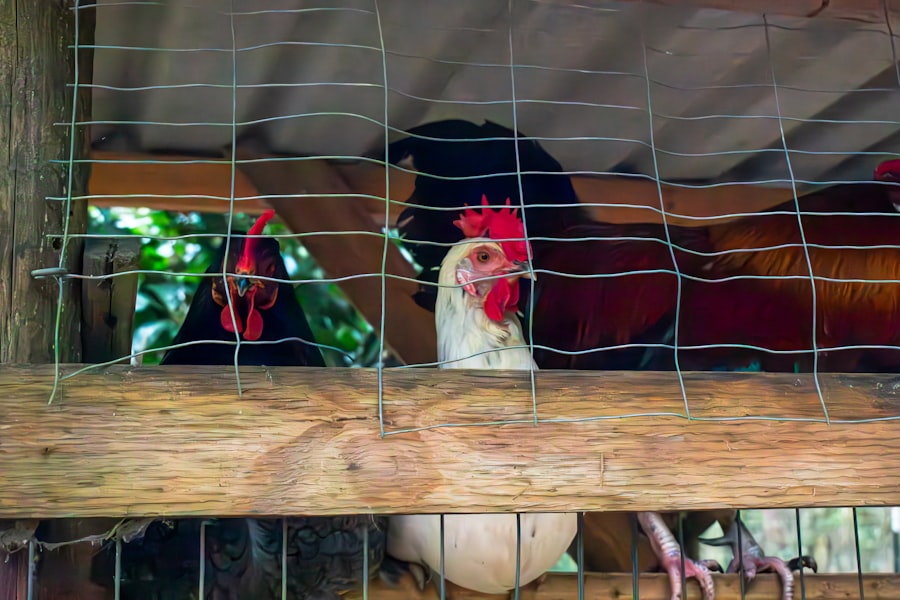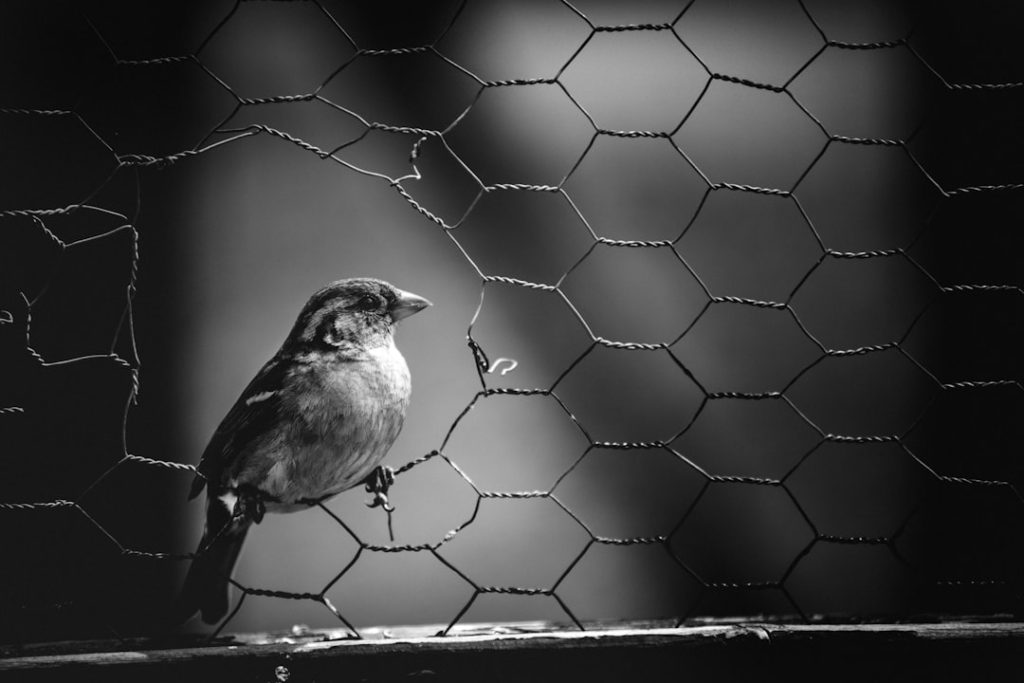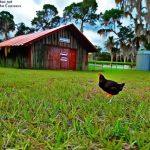Chickens exhibit natural curiosity and social behavior, with a strong instinct for foraging. Their opportunistic feeding habits lead them to exploit any available food sources. Understanding these inherent traits is essential for developing effective strategies to prevent chickens from foraging in undesired areas.
By recognizing their natural tendencies, one can anticipate potential attraction points and implement proactive deterrent measures. The pecking instinct is another significant aspect of chicken behavior. This instinct drives chickens to peck at various objects and surfaces, which can become problematic if directed towards valuable structures or plants.
Acknowledging this behavior allows for the implementation of protective measures for vulnerable areas and the provision of alternative spaces where chickens can satisfy their pecking urge without causing damage.
Table of Contents
- 1 Creating physical barriers
- 2 Implementing deterrents
- 3 Providing alternative spaces for foraging
- 4 Using natural repellents
- 5 Training and supervision
- 6 Seeking professional advice
- 7 FAQs
- 7.1 What are some effective ways to keep chickens out of my garden?
- 7.2 What type of fencing is best for keeping chickens out of the garden?
- 7.3 What are some natural deterrents that can be used to keep chickens out of the garden?
- 7.4 How can I create physical barriers to keep chickens out of my garden?
- 7.5 Why is it important to provide alternative areas for chickens to forage?
Key Takeaways
- Chickens are naturally curious and will explore their surroundings, including areas they are not supposed to be in.
- Physical barriers such as fences and netting can be effective in keeping chickens out of certain areas.
- Deterrents like motion-activated sprinklers or noise-making devices can discourage chickens from entering restricted areas.
- Providing alternative spaces for foraging, such as designated areas with loose soil and vegetation, can redirect chickens’ natural behavior.
- Natural repellents like citrus peels or strong-smelling herbs can be used to discourage chickens from entering certain areas.
- Training chickens to respond to certain cues and supervising their behavior can help prevent them from accessing restricted areas.
- Seeking professional advice from a veterinarian or animal behaviorist can provide tailored solutions for managing chicken behavior.
Creating physical barriers
Creating Physical Barriers
One effective way to prevent chickens from foraging in unwanted areas is to create physical barriers. This can include fencing off specific areas or using netting to cover plants and gardens. By creating these barriers, you can limit the chickens’ access to certain areas and protect your plants and structures from their pecking and foraging.
Securing the Barriers
It’s important to ensure that the barriers are secure and properly installed to prevent the chickens from finding ways to bypass them. Another option for creating physical barriers is to use chicken wire or mesh to protect specific areas.
Protecting Gardens and Flower Beds
This can be particularly useful for protecting gardens and flower beds from the chickens’ foraging behavior. By installing chicken wire around these areas, you can create a physical barrier that prevents the chickens from accessing the plants while still allowing them to roam freely in other parts of the yard.
Implementing deterrents

In addition to physical barriers, implementing deterrents can be an effective way to prevent chickens from foraging in unwanted areas. There are various deterrent options available, including motion-activated sprinklers, ultrasonic devices, and visual deterrents such as scarecrows or reflective tape. These deterrents work by creating an unpleasant or intimidating environment for the chickens, discouraging them from foraging in specific areas.
Another effective deterrent is the use of noise-making devices, such as clappers or bells, to startle the chickens when they approach unwanted areas. By associating these areas with loud or unexpected noises, the chickens are less likely to continue foraging in those spaces. It’s important to regularly change the location of these deterrents to prevent the chickens from becoming accustomed to them.
Providing alternative spaces for foraging
One way to prevent chickens from foraging in unwanted areas is to provide alternative spaces for them to satisfy their natural instincts. This can include creating designated foraging areas with loose soil or mulch where the chickens can scratch and peck. By providing these alternative spaces, you can redirect the chickens’ foraging behavior away from areas where it may cause damage.
Another option is to scatter food and treats in specific areas of the yard to encourage the chickens to forage in those spaces instead of in unwanted areas. By providing a consistent food source in these designated areas, you can help steer the chickens away from sensitive plants and structures.
Using natural repellents
Natural repellents can also be effective in deterring chickens from foraging in unwanted areas. There are various natural substances that chickens find unpleasant or irritating, such as citrus peels, garlic, or hot peppers. By strategically placing these repellents around sensitive areas, you can create an environment that is unappealing to the chickens, discouraging them from foraging in those spaces.
Another natural repellent option is the use of predator scent, such as coyote or fox urine, which can create a sense of danger for the chickens and deter them from approaching certain areas. These natural repellents can be particularly effective when used in combination with other deterrent methods, such as physical barriers or noise-making devices.
Training and supervision

Establishing Boundaries
Consistently reinforcing boundaries and redirecting the chickens’ behavior helps them understand where they are allowed to forage and where they should avoid. This can be achieved through positive reinforcement, such as rewarding the chickens when they forage in designated areas, and gently redirecting them when they approach sensitive areas.
Regular Supervision
Regular supervision of the chickens is crucial in preventing them from foraging in unwanted areas. By keeping an eye on their behavior and intervening when necessary, you can quickly address any attempts to forage in sensitive areas and guide the chickens back to designated foraging spaces.
Effective Intervention
Through a combination of training and supervision, you can effectively prevent chickens from foraging in unwanted areas. By consistently reinforcing boundaries and intervening when necessary, you can create a safe and healthy environment for your chickens to thrive.
Seeking professional advice
If you are struggling to prevent chickens from foraging in unwanted areas despite implementing various strategies, it may be beneficial to seek professional advice. A professional animal behaviorist or poultry expert can provide valuable insights and recommendations tailored to your specific situation. They can assess the chickens’ behavior and environment and offer personalized guidance on how to effectively prevent them from foraging in unwanted areas.
Additionally, consulting with a professional veterinarian can help ensure that your chickens are healthy and well-nourished, which can reduce their motivation to forage in unwanted areas. A veterinarian can also provide advice on dietary adjustments or supplements that may help satisfy the chickens’ natural instincts and reduce their desire to forage in sensitive areas. In conclusion, preventing chickens from foraging in unwanted areas requires a combination of understanding their behavior, implementing physical barriers and deterrents, providing alternative spaces for foraging, using natural repellents, training and supervision, and seeking professional advice when necessary.
By taking a proactive and multifaceted approach, you can effectively protect your plants and structures while still allowing your chickens to satisfy their natural instincts in a controlled manner.
If you’re struggling to keep your chickens out of your garden, you may also be interested in learning about the incubation period for goose eggs. Check out this article to gain insight into the breeding habits of geese and how to manage them alongside your chickens.
FAQs
What are some effective ways to keep chickens out of my garden?
Some effective ways to keep chickens out of your garden include using fencing, creating physical barriers, using natural deterrents, and providing alternative areas for the chickens to forage.
What type of fencing is best for keeping chickens out of the garden?
A sturdy wire or mesh fencing that is at least 4 feet tall and buried a few inches into the ground is best for keeping chickens out of the garden. This will prevent them from digging under the fence or flying over it.
What are some natural deterrents that can be used to keep chickens out of the garden?
Natural deterrents such as citrus peels, coffee grounds, or cayenne pepper sprinkled around the garden can help deter chickens from entering. Additionally, planting certain herbs or flowers that chickens dislike, such as marigolds or lavender, can also help keep them away.
How can I create physical barriers to keep chickens out of my garden?
Creating physical barriers such as raised garden beds, low fences, or using chicken wire or netting over the garden can help keep chickens from accessing the area.
Why is it important to provide alternative areas for chickens to forage?
Providing alternative areas for chickens to forage, such as a designated free-range area or a separate garden space, can help redirect their natural instinct to scratch and peck, keeping them away from the main garden. This can also provide them with a healthier and more diverse diet.
Meet Walter, the feathered-friend fanatic of Florida! Nestled in the sunshine state, Walter struts through life with his feathered companions, clucking his way to happiness. With a coop that’s fancier than a five-star hotel, he’s the Don Juan of the chicken world. When he’s not teaching his hens to do the cha-cha, you’ll find him in a heated debate with his prized rooster, Sir Clucks-a-Lot. Walter’s poultry passion is no yolk; he’s the sunny-side-up guy you never knew you needed in your flock of friends!







